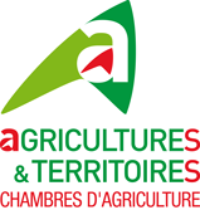Document type : news item from the CIWF France website
Author: CIWF France
Preview: France is into the home stretch to get its National Strategic Plan for the Common Agricultural Policy (CAP) validated. The decisions made by the French Minister of Agriculture are worrying: not only does the French Plan fail to make provision for any measures to support good farming practices for animal welfare, worse still, it does not exclude intensive farming from financial support. The French NSP plans to subsidise intensive livestock farming through
Basic aid that is not conditional on animal welfare criteria
To date, the proposal put forward by France includes no provisions that would make financial support conditional on improvements in animal welfare: basic payments under the first pillar of the CAP will therefore be allocated regardless of the production system in operation. As a reminder, 80% of French livestock farming is intensive, involving mainly poultry, pigs, veal and rabbits.
Coupled payments (allocated on the basis of production) will evolve in line with an allocation based on LUs (Livestock Units), making it possible to take the whole herd into account (and avoid "calf production lines"), however, the criterion for stocking rates (which places limits on density) will not be applicable to the first 40 LUs to be awarded payments, and no grazing criterion will be applied. Thus, dairy herds with zero grazing as well as intensive fattening systems for young cattle (e.g. 1000-bullock farms) will be able to benefit from this aid!
An eco-scheme that will finance intensive livestock farming via HVE certification
The new CAP eco-scheme system, as deployed by the Minister of Agriculture in the National Strategic Plan, will also remunerate level 2+ environmental certification at Level 1, and the HVE label at Level 2.
The certification not only has few teeth in environmental terms, it also fails to include any criteria on farming conditions for animals. This weakness in the certification process allows the Ministry of Agriculture to facilitate equivalence with private systems.
Thus, it is very easy for a large proportion of French intensive livestock farms to benefit from certification without changing any of their farming practices. And the sectors involved have not been fooled: they have staked their development strategies on the use of this certification to unlock privileged access to subsidies and public contracts (via the requirement introduced by the Egalim Act for school canteens, among others, to include 50% of so-called sustainable products on their menus).
A flimsy label, ill-suited to farming and designed to act as a fig leaf for conventional French production
The French poultry industry requested and obtained, by a decree of 25 January 2021, that its "Broiler Poultry" charter be awarded Level 2 environmental certification by the Ministry of Agriculture.
However, this charter, which the industry itself describes as a "minimum basis", currently extends to all so-called "conventional" French broiler poultry farming. For example, it does not include any criteria on the origin of feeds, even though the poultry industry is a major player in importing soya produced following deforestation, nor does it include any criteria to guarantee requirement standards in terms of animal welfare that go further than the minimum set by regulations.
Worse still, according to a European Commission report, the French broiler industry accounts for more than half (55%) of European broilers reared at the maximum density authorised by derogation from the regulatory threshold, i.e. 42 kg per square metre, whereas other Member States have chosen to retain only the minimum permitted density when transposing the Directive into their national legislative frameworks.
In other words, standard French broiler production is the most intensive in Europe, and it has just obtained a flimsy certificate devoid of any binding criteria on husbandry, which will enable it to obtain CAP subsidies from 2023.
Thus, thanks to the French Minister of Agriculture's decision that the HVE label and level 2 environmental certification qualify for eco-scheme payments, the French NSP will allow intensive livestock farming to be subsidised.
Thus, although this eco-scheme should be set up to support best practices in terms of climate, biodiversity and animal welfare, it here constitutes a misuse of the system, having no aim to achieve the agro-ecological transition of intensive livestock systems.
These intensive businesses cause serious harm, through their bad practices, to the image of more ecologically sustainable supply chains, which are nevertheless those in most in difficulty. They are struggling to cope with economic competition from the standard livestock farms.
While the transition of livestock farming from the most intensive production systems to more virtuous environmental and animal-welfare practices has been identified as a major issue for this next Common Agricultural Policy to address, France has chosen to support its conventional producers, imposing no requirement for transition or evolution. In doing so, it is hijacking the eco-scheme system around which the next, greener CAP has been constructed.
News item discussed in an article in Réussir on 30 November 2021 : Pac – L’association CIWF dénonce un PSN qui va « subventionner l’élevage intensif »






